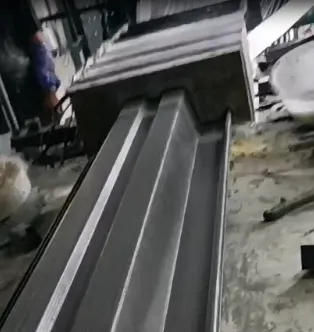loading...
- No. 9, Xingyuan South Street, Dongwaihuan Road, Zaoqiang County, Hengshui, Hebei, China
- admin@zjcomposites.com
- +86 15097380338
- Welcome to visit our website!
High-Performance FRP Pressure Vessel Tanks for Industrial Applications
FRP Pressure Vessel Tanks A Comprehensive Overview
Fiber Reinforced Polymer (FRP) pressure vessel tanks have emerged as a revolutionary solution in various industries, including water treatment, chemical processing, and oil and gas. These tanks are engineered to withstand high pressures while providing excellent corrosion resistance, making them ideal for storing aggressive chemicals and fluids.
FRP Pressure Vessel Tanks A Comprehensive Overview
The construction of FRP tanks involves the use of composite materials, which consist of a polymer matrix reinforced with fibers, typically glass or carbon. This combination provides high tensile strength and durability while maintaining flexibility. The manufacturing process often includes advanced techniques like filament winding or hand lay-up, ensuring uniformity and structural integrity throughout the tank.
frp pressure vessel tank

Corrosion resistance is one of the most compelling benefits of FRP pressure vessels. Traditional metal tanks are susceptible to rust and degradation when exposed to chemicals and environmental elements. In contrast, FRP tanks resist corrosion, ensuring longevity and reducing maintenance costs. This attribute not only extends the lifespan of the tanks but also enhances safety for the operating personnel and surrounding environment.
Another significant aspect of FRP tanks is their thermal insulation properties. These vessels can effectively maintain temperature within the tank, which is crucial for processes that involve temperature-sensitive substances. The thermal stability provided by FRP can prevent undesired reactions and ensure consistent operational efficiency.
Moreover, FRP tanks can be designed to meet specific regulatory standards, providing peace of mind to operators regarding compliance with safety and environmental regulations. This adaptability allows industries to implement FRP pressure vessels in a wide range of applications, from industrial storage to potable water systems.
In conclusion, FRP pressure vessel tanks represent a modern solution to the challenges posed by traditional storage methods. Their lightweight, corrosion-resistant, and customizable nature makes them an attractive option for various industries. As industries continue to evolve and demand more efficient and durable storage solutions, FRP tanks will undoubtedly play a crucial role in shaping the future of industrial storage infrastructure. Their inherent advantages not only enhance operational efficiency but also contribute positively to environmental sustainability.
-
GRP Structures: The Future of Lightweight, High-Performance EngineeringNewsJun.20,2025
-
FRP Water Tank: High-Performance Storage for Corrosive and Clean Water SystemsNewsJun.20,2025
-
FRP Square Tube: The New Industry Standard for Chemical and Structural ApplicationsNewsJun.20,2025
-
FRP Pultruded Profiles: The Ultimate Choice for Lightweight Structural StrengthNewsJun.20,2025
-
FRP Handrails: The Safer, Smarter, and Stronger Choice for Modern InfrastructureNewsJun.20,2025
-
FRP Grating: The Smart Solution for Durable, Lightweight Industrial FlooringNewsJun.20,2025
-
Why Choose a Galvanized Water Tank for Your Storage NeedsNewsMay.21,2025
